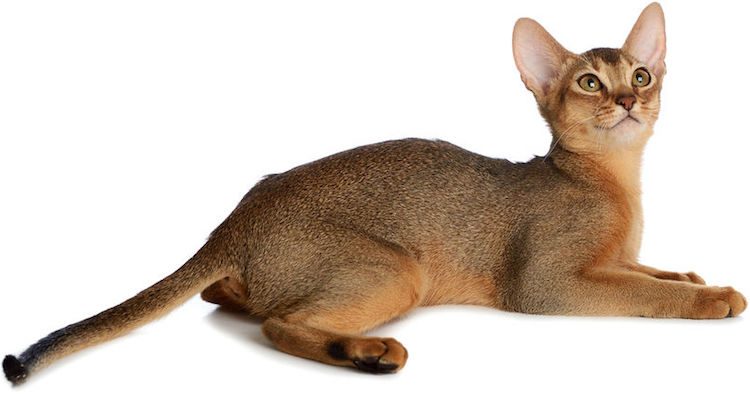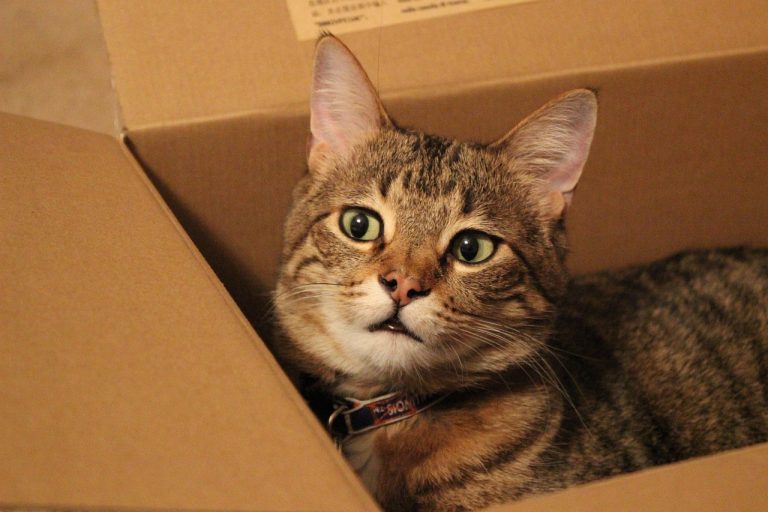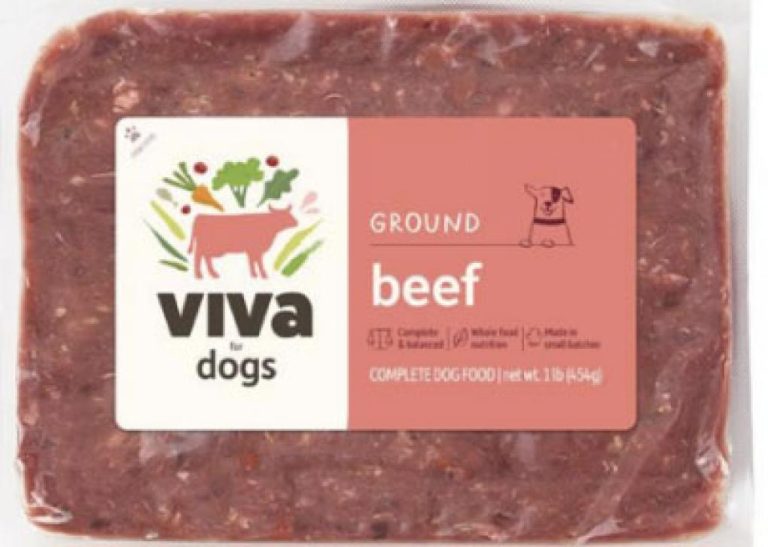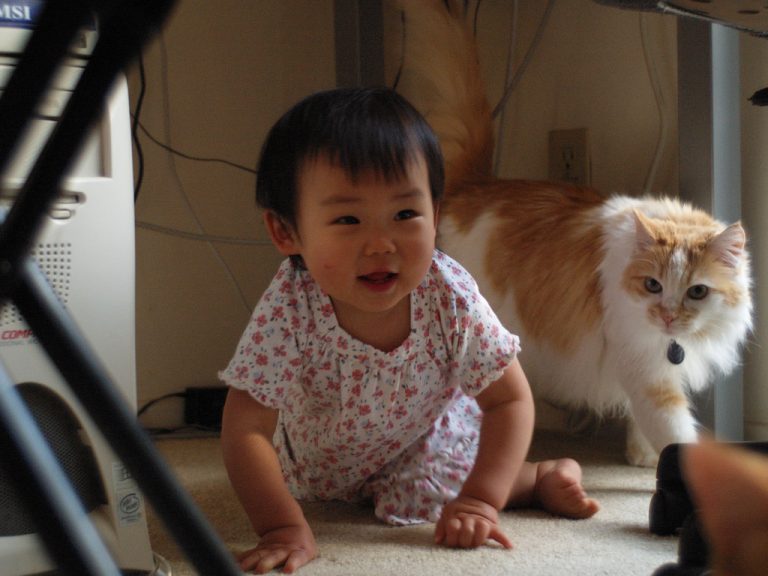Abyssinian Cat: Discovering the Regal and Playful Breed
Explore the characteristics, origin, and care of the Abyssinian cat, a regal yet playful breed perfect for active families. Learn more now!
British shorthair Cats
Don’t Guess When It Comes To Your Pet’s Care


Don’t Guess When It Comes To Your Pet’s Care
Origin of Abyssinian Cats
Abyssinian cats are one of the oldest domesticated cat breeds. Genetic tests have traced their origin to the Bay of Bengal in India. This breed appeared in the United States in the early 20th century and quickly gained popularity. The development of high-quality Abyssinians in the 1930s, thanks to imports from Britain, solidified their status as a favorite among cat lovers.
Key Characteristics of Abyssinian Cats
Abyssinian cats are often compared to small mountain lions due to their graceful, muscular build and regal movements. Key characteristics include:
- Weight: 6–10 pounds
- Life Expectancy: 12–15 years
- Physical Traits:
- Expressive almond-shaped eyes
- Wedge-shaped head
- Arched neck
- Large ears
- Coat:
- Short and ticked with multicolored strands
- Main colors: ruddy, red, blue, and fawn
- Sparkling and iridescent appearance (may vary by cat)
This high-energy and inquisitive breed is known for its striking looks and playful nature, making the Abyssinian cat a delightful addition to any home.
Unique Traits of Abyssinian Cat
Abyssinian cats are renowned for their distinctive characteristics that set them apart from other breeds.
- Appearance:
- Ticked Coat: Abyssinians have a unique ticked coat with each hair featuring multiple colors, giving it a sparkling, iridescent look. The primary colors include ruddy, red, blue, and fawn.
- Almond-shaped Eyes: Their expressive almond-shaped eyes can range from gold to green, adding to their exotic appearance.
- Athletic Build: They have a sleek, muscular body that resembles a small mountain lion, contributing to their graceful and agile movements.
- Personality:
- Curiosity: Abyssinians are extremely curious and love to explore their surroundings. They are known to investigate every corner and height within reach.
- Playfulness: These cats remain playful well into adulthood, often enjoying games like fetch. Their high energy levels require mental and physical stimulation.
- Sociability: Abyssinians are very people-oriented and enjoy being close to their family members. They are affectionate and often follow their owners around the house.

How Friendly Are Abyssinian Cats?
Abyssinian cats are known for their extreme curiosity and intelligence. They will investigate every corner and height within reach, making them lively and engaging pets.
- Playfulness:
- Likely to chase anything that moves
- Known for teaching their owners to play fetch
- Playful as kittens and continue into adulthood
- Personality:
- Can be regal and sophisticated one minute, silly the next
- Ideal for active families due to their dynamic nature
- Affection:
- Highly affectionate and people-oriented
- Often follow family members around, being inquisitive and social
- Learn more about how affectionate and people-oriented cats can be
- Safety:
- Keep toxic items and breakables out of reach
- These cats will climb and explore nearly every surface, so ensure your home is Abyssinian-proof
Abyssinians are intelligent cats and make wonderful companions for those who can match their energy and curiosity. Their playful and affectionate nature makes them a beloved breed for many families.
Is This the Right Cat for You?
Exercise Needs
Abyssinian cats have medium exercise needs. These active and playful cats love vertical spaces and would appreciate a cat tower in addition to toys. They are typically active in the home and won’t miss not being able to go outdoors. However, some Abyssinians may try to make a run for it every time a door opens, so be cautious.
MediumActivity Level:
- Love vertical spaces and cat towers
- Active indoors and generally content without outdoor access
- If your Abyssinian becomes less active, consult your veterinarian
Grooming Needs
The grooming needs of Abyssinian cats are low. Brush this low-maintenance breed once per week or more if possible, especially during the shedding season. Bathing is needed occasionally, starting from kittenhood. After bathing, a simple towel pat-down is sufficient, allowing the coat to drip-dry naturally.
LowGrooming Tips:
- Brush weekly to manage shedding
- Bathe as needed; start when they are kittens
- Brush the teeth daily (or at least weekly) to prevent periodontal disease
- Clean the corners of the eyes and check their large ears regularly
Health Problems
Abyssinian cats have medium health concerns. While there are common health issues for all cats, several specific problems are noted in the Abyssinian breed:
Medium- Common Health Issues:
- Periodontal disease
- Neurological problems leading to excessive grooming
- Luxating patella (knee problems)
- Retinal atrophy (eye problems)
- Kidney failure
- Pyruvate kinase deficiency (PKD), an inherited anemia detectable by gene testing
Not all Abyssinians will experience these issues, but regular veterinary check-ups are essential for early detection and management. For more information on related breeds, you can also read about Somalis.
Caring for an Abyssinian Cat
Caring for an Abyssinian cat involves meeting their physical, emotional, and health needs to ensure they thrive.
- Exercise:
- Activity Levels: Abyssinians are active cats that enjoy climbing and exploring. Providing a cat tower and interactive toys can help satisfy their need for exercise.
- Indoor Environment: They are content living indoors but ensure the environment is stimulating to prevent boredom.
- Grooming:
- Low Maintenance: Their short coat requires minimal grooming. Brush them once a week to remove loose hairs, especially during shedding seasons.
- Dental Care: Regular brushing of their teeth is essential to prevent periodontal disease. Brush their teeth daily or at least weekly.
- Bathing: Bath them as needed, starting from when they are kittens to get them accustomed to the process.
- Nutrition:
- Balanced Diet: Provide high-quality cat food that meets their nutritional needs. Consult your veterinarian for specific dietary recommendations.
Health and Wellness Tips for Abyssinian Cat
Maintaining the health and wellness of an Abyssinian cat requires regular veterinary care and attention to common breed-specific health issues.
- Regular Vet Check-ups:
- Routine Exams: Schedule regular check-ups to monitor their health and catch any issues early.
- Vaccinations: Keep their vaccinations up to date to protect against common feline diseases.
- Common Health Issues:
- Periodontal Disease: Abyssinians are prone to dental issues, so regular dental care is crucial.
- Retinal Atrophy: This breed can suffer from retinal atrophy, a condition that affects vision.
- Kidney Failure: They may also be prone to kidney failure, so it’s important to monitor their kidney health.
- Pyruvate Kinase Deficiency (PKD): This inherited condition can lead to anemia. Regular testing and monitoring can help manage this condition.
- Wellness Tips:
- Mental Stimulation: Provide plenty of toys and activities to keep their minds active.
- Hydration: Ensure they have access to fresh water at all times to support their overall health.
By following these guidelines, you can help ensure your Abyssinian cat leads a healthy, happy, and fulfilling life.
Where to Adopt an Abyssinian Cat
Abyssinian cats, like other purebred cats, can sometimes end up in shelters and rescues. To find Abyssinian cats available for adoption near you, start with our free adoptable pet search.
- Adoption Tips:
- Search for Abyssinian cats in local shelters and rescues
- Use reputable sources to ensure a healthy and well-cared-for pet
If you choose to go through breeders, it’s crucial to ensure they are reputable and do not exhibit any red flags associated with kitten mills.
- Breeder Caution:
- Avoid breeders with signs of operating a kitten mill
- Ensure the breeder provides proper health documentation and living conditions for the cats
By adopting or purchasing responsibly, you can enjoy the company of a delightful Abyssinian cat while supporting ethical practices.
Frequently Asked Questions (FAQ)
What is an Abyssinian cat?
An Abyssinian cat is a domesticated breed known for its playful, curious nature and distinctive ticked coat.
What does an Abyssinian cat look like?
An Abyssinian cat has a sleek, muscular build with expressive almond-shaped eyes and a short, ticked coat in various colors.
How much is an Abyssinian cat?
An Abyssinian cat typically costs between $500 and $1,500, depending on the breeder and pedigree.







